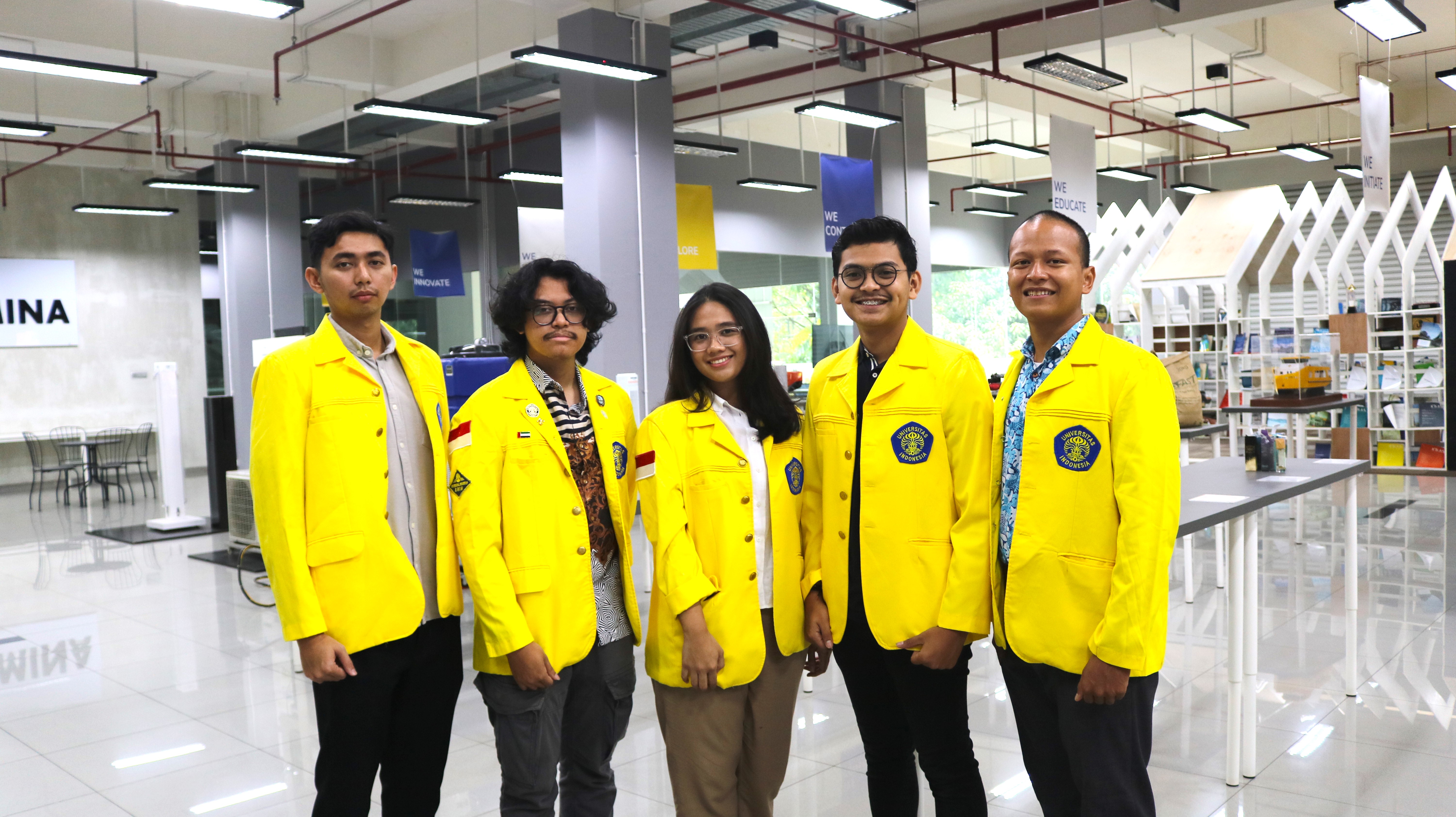Five students of the Department of Mechanical Engineering, Faculty of Engineering (FT), University of Indonesia (UI) have created a sustainable aircraft material innovation. Joining the KUTECH ENGINEERING team, they used sisal fibre as an environmentally friendly alternative to carbon and glass in aircraft interiors.
Under the guidance of Prof. Dr.-Ing. Nandy Setiadi Djaya, Professor of the Department of Mechanical Engineering FTUI, this innovative team consists of Josiah Enrico Syefatiawan, Dhifan Kemal Akbar, Revaldy Putra Agatha, Yasmine Karenita Siregar (Class of 2019) and Soultan Aliefiansyah (Class of 2020).
Josiah Enrico Syefatiawan, a member of the KUTECH ENGINEERING team said, “This idea came about because we felt the need to develop technology that supports sustainability in the aviation industry. We are looking for alternative solutions in aircraft materials by utilising natural materials such as sisal fibre which has potential as reinforcement for polymer composites. Beyond its function for traditional tools, sisal fibre has the potential to be used as a material in the aircraft and automotive industries.”
Sisal (Agave Sisalana) is a potential natural fibre-producing plant with the advantages of strong fibre, resistance to high salt content, renewability, and environmental friendliness. The fibre extracted from Agave Sisalana leaves is also known as sisal fibre. Initially, sisal fibre was widely used to make rigging, such as tobacco leaf straps in Madura and jute sacks for packaging agricultural products. However, nowadays, sisal natural fibre can be applied more widely, including for household industry purposes and car interior components.
“The use of sisal fibre has the advantage of being lightweight, fire-resistant, and strong. With these characteristics, sisal fibre can replace materials such as carbon fibre and glass fibre, which require large energy consumption in the manufacturing process and are difficult to recycle. Hopefully, the use of sisal fibre will reduce the production cost of aircraft interior panels and significantly improve the sustainability aspect of aviation technology,” said Dhifan Kemal Akbar.
The Dean of FTUI, Prof. Dr Heri Hermansyah, S.T., M.Eng., IPU, fully supported the innovation of the Mechanical Engineering Department students. He said, “The utilisation of natural materials is a very relevant opportunity in supporting industrial development, especially in the aerospace sector.
In the current era that emphasises the importance of sustainability, hopefully this idea can be an alternative in aircraft manufacturing. The innovation by FTUI students makes a significant contribution to creating sustainable solutions in the aviation industry.”
The UI students’ innovation proves that innovative, environmentally friendly solutions can play a key role in the transformation of the aviation industry. Furthermore, this invention provides an opportunity for aircraft manufacturers to reduce their carbon footprint and utilise more sustainable materials in future aircraft production.
***
Public Communication Bureau
Faculty of Engineering, University of Indonesia

